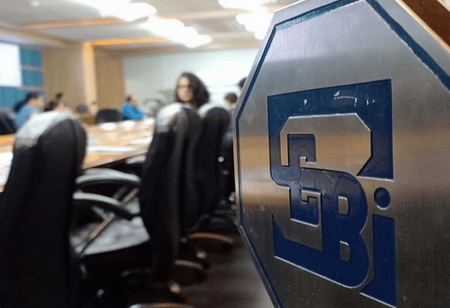 Securities and Exchange Board of India (Sebi), in its board meeting approved amendments to rules on Infrastructure Investment Trust (InvITs) and REITs. To ensure fund managers allocate investors’ money with prudence, Sebi made it mandatory for asset management companies (AMCs) to put in a minimum investment from their own account every time a mutual fund scheme is launched.
Securities and Exchange Board of India (Sebi), in its board meeting approved amendments to rules on Infrastructure Investment Trust (InvITs) and REITs. To ensure fund managers allocate investors’ money with prudence, Sebi made it mandatory for asset management companies (AMCs) to put in a minimum investment from their own account every time a mutual fund scheme is launched.
The markets regulator on Tuesday tightened norms for mutual funds, hiring of independent directors and opened investments in real-estate investment trusts to small investors and in private equity and venture capital funds to so-called accredited investors.
To ensure fund managers allocate investors’ money with prudence, the Securities and Exchange Board of India (Sebi) made it mandatory for asset management companies (AMCs) to put in a minimum investment from their own account every time a mutual fund scheme is launched. The markets regulator said AMCs will have to invest in the schemes to ensure “skin in the game” in proportion to the risks associated with the scheme, meaning a riskier investment portfolio will require a higher proprietary investment contribution. AMCs are currently required to invest a maximum of ₹50 lakh per scheme.
Sebi’s move aims to curb mis-selling by AMCs and ensure that fund managers allocate investors’ money judiciously. The move comes after retail investors lost money in the past few years because of risky bets by fund managers and concentrated investments.
Following a board meeting, Sebi eased investment norms for Reits, allowing investors to make smaller bets. It revised the minimum subscription and trading lot for Reits and InvITs. The minimum application value has been reduced from ₹50,000 to a range of ₹10,000-15,000. Investors can also buy and sell just one unit.
In July 2020, a report suggested that Sebi was considering opening up Reits and InvITs to small investors by lowering the minimum trading lot size of Reit units to just a single unit, much like how stocks are traded. The decision is expected to bring more investors into Reits and InvITs, investment vehicles backed by income-generating properties such as offices, malls or roads.
“The reduction in trading lot size is a landmark step by Sebi to deepen the market for InvITs,” said Harsh Shah, chief executive of IndiGrid. This will not only lead to better liquidity and efficient price discovery but also provide an attractive opportunity for retail investors to earn stable yields with growth potential. The move also paves the way for increased institutional participation.
“With three publicly listed InvITs and three publicly listed Reits, everyone who wants to have yields that are better than income from fixed deposits and with reasonable risk can now enter this market,” said Yash Ashar, partner and head of capital markets at Cyril Amarchand Mangaldas.
Sebi also opened investments in securities that are not publicly traded to all classes of investors as long as they are considered well-informed.
Sebi stated that accredited investors will be allowed to invest in alternative investment funds (AIFs) such as private equity, venture capital and hedge funds without requiring to follow minimum investment norms.
We use cookies to ensure you get the best experience on our website. Read more...